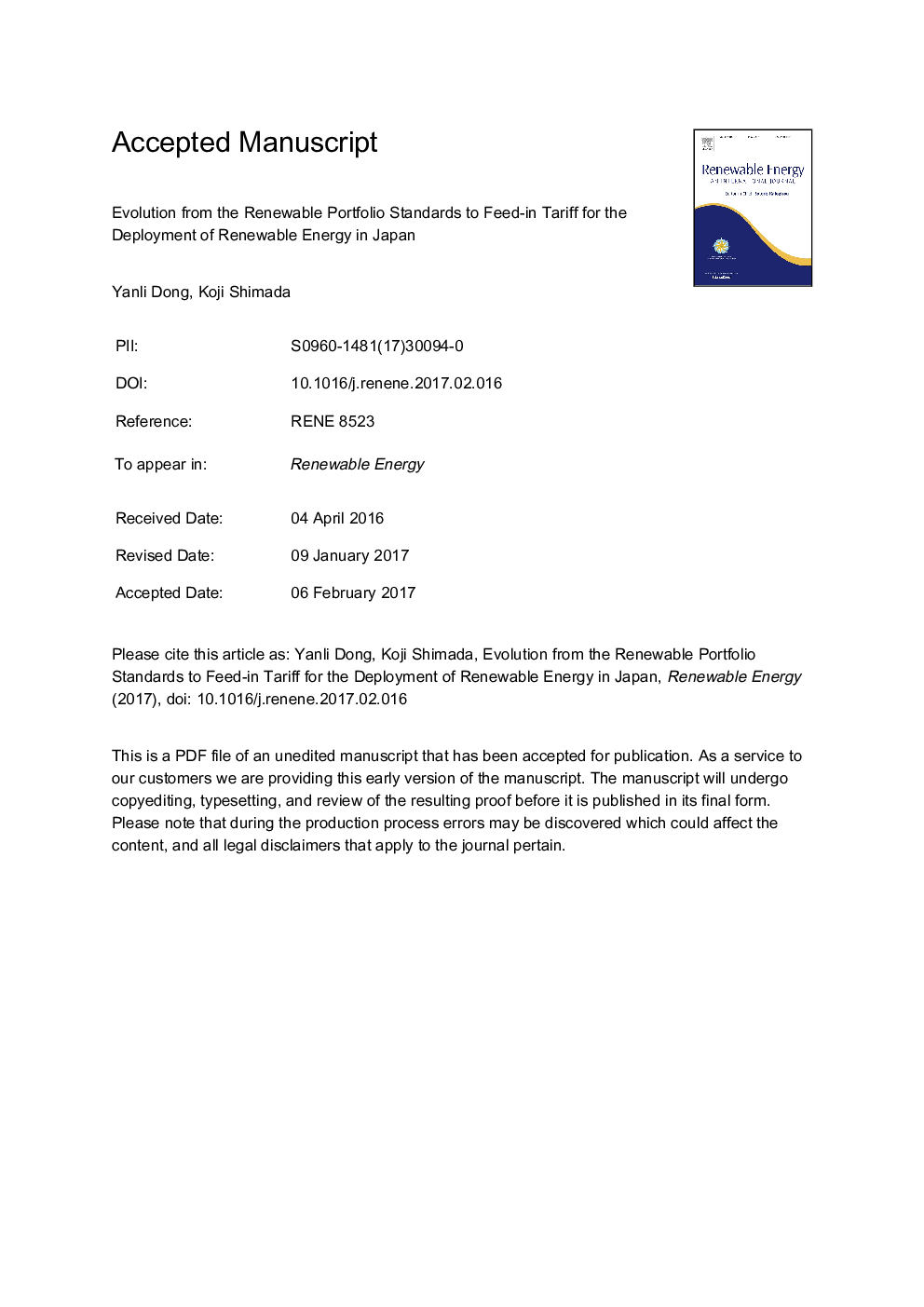| کد مقاله | کد نشریه | سال انتشار | مقاله انگلیسی | نسخه تمام متن |
|---|---|---|---|---|
| 4926741 | 1431597 | 2017 | 19 صفحه PDF | دانلود رایگان |
عنوان انگلیسی مقاله ISI
Evolution from the renewable portfolio standards to feed-in tariff for the deployment of renewable energy in Japan
ترجمه فارسی عنوان
تکامل از استانداردهای بازاریابی تجدید پذیر به تعرفه های خوراک برای استقرار انرژی های تجدید پذیر در ژاپن
دانلود مقاله + سفارش ترجمه
دانلود مقاله ISI انگلیسی
رایگان برای ایرانیان
کلمات کلیدی
انرژی تجدید پذیر، مکانیسم های مالی، تجزیه و تحلیل نظری، ژاپن،
موضوعات مرتبط
مهندسی و علوم پایه
مهندسی انرژی
انرژی های تجدید پذیر، توسعه پایدار و محیط زیست
چکیده انگلیسی
Following the dominant firm-competitive fringe model, this paper analyses the response of Japan's nonrenewable electricity utilities to the renewable portfolio standards (RPS) and feed-in tariff (FIT) scheme. The output of electricity from renewable energy sources (RES-E) is primarily correlated with the magnitude of the RPS requirement and the fixed tariff. Nonrenewable firms suffer a reduction in revenue due to increased RES-E production under both schemes. The RPS requirement has direct impact on the renewable energy certificate (NEC) price. If the incumbent nonrenewable electricity utilities gain market power in both electricity and NEC markets, they can suppress the RPS quota to preserve their vested benefits. In the FIT scheme, the above-market RES-E generation cost is passed on to consumers via a surcharge. Since grid-connected RES-E accelerated rapidly under FIT, nonrenewable electricity utilities would face a substantial increase in costs to maintain network reliability due to the intermittent and variable nature of RES-E technologies. The Japanese government should therefore take measures to ensure variable renewable power occupies a higher share of the electricity system, and to do so in a cost-effective manner.
ناشر
Database: Elsevier - ScienceDirect (ساینس دایرکت)
Journal: Renewable Energy - Volume 107, July 2017, Pages 590-596
Journal: Renewable Energy - Volume 107, July 2017, Pages 590-596
نویسندگان
Yanli Dong, Koji Shimada,
